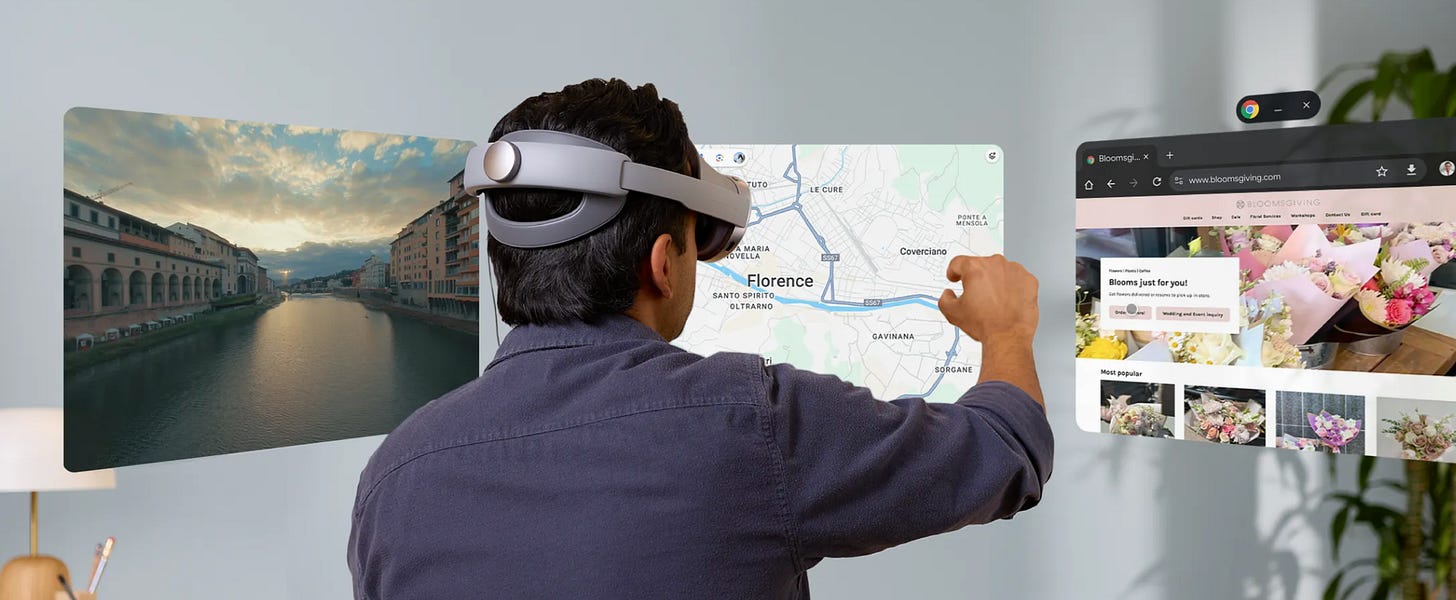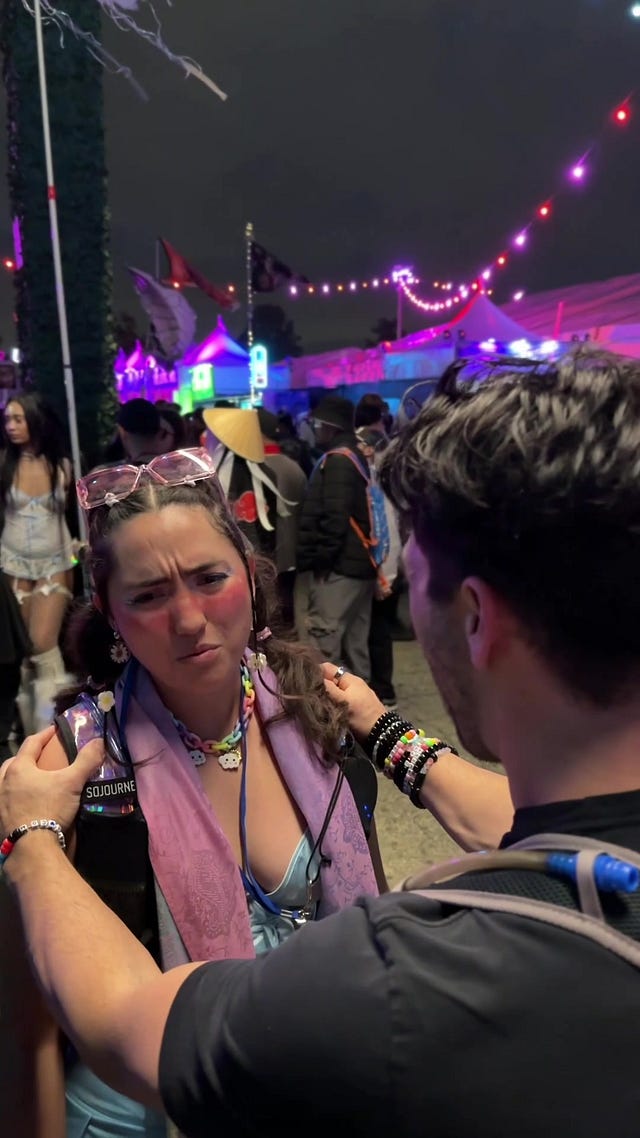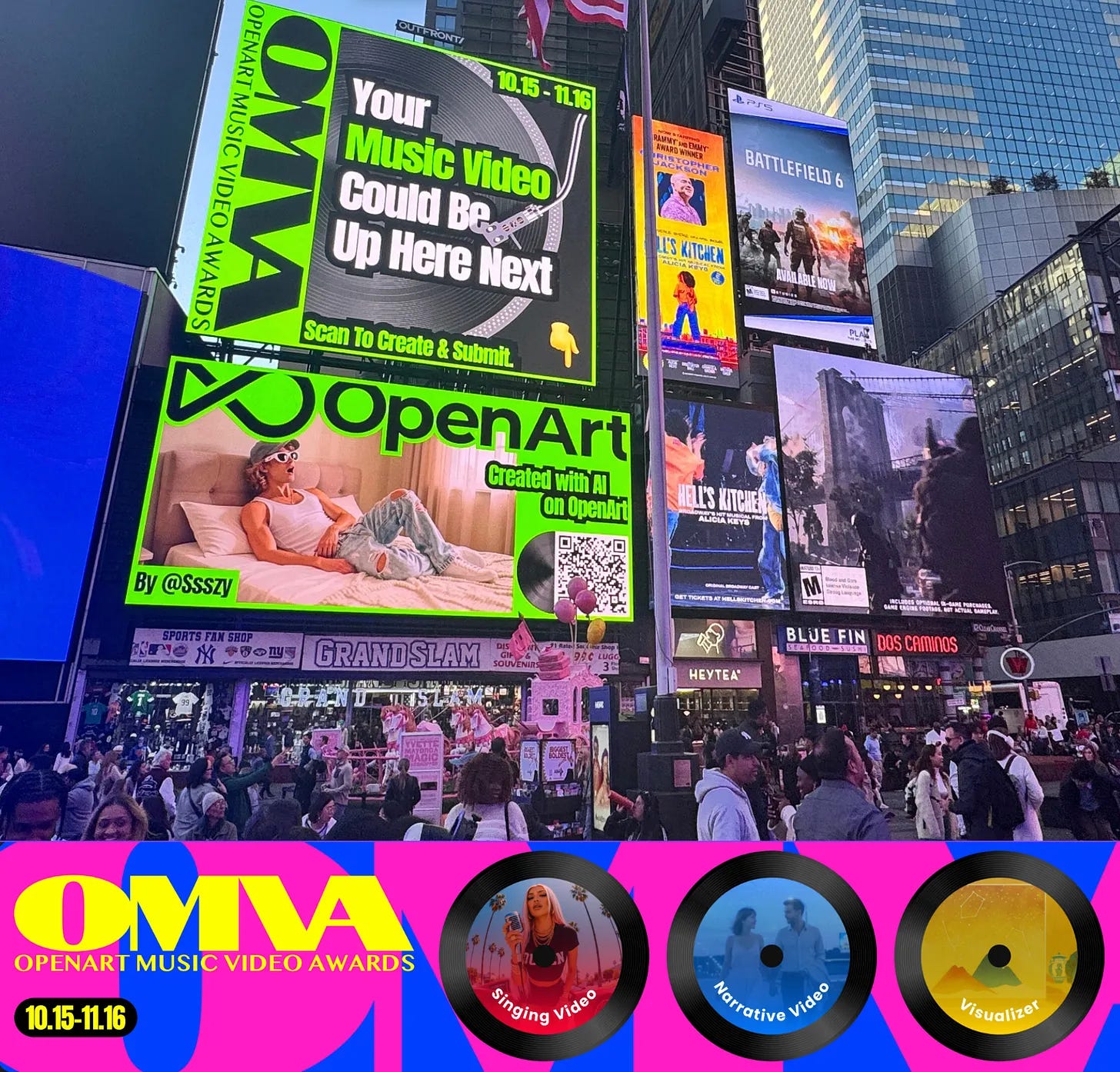All the President’s Prompts
The White House demolishes it's only cinema whilst Paul Schrader plans to make next film with AI.
Hi everyone —
Happy Monday! Let’s rock & roll. Have an epic week. It’s in your hands.
Enjoy today’s newsletter,
—Shamir
A week in boardroom blitz and existential crisis.
David Ellison is spending billions to rebuild Paramount from the ground up. The White House bulldozed its own movie theater. Paul Schrader handed his next script to AI.
Everywhere you look, the old guard is cashing out, caving in, or being rewritten.
In one corner, Wonder Studios (backed by OpenAI and Epic Games) raised $12 million to automate VFX. In another, YouTube is arming creators against deepfakes while Sora and Veo continue to lead the video evolution race.
Even the week’s lighter stories carried subtext.
Elizabeth Olsen swore off non-theatrical releases as the Tokyo Film Festival rolled out its red carpet, the same week the White House rolled up its projector screen.
And somewhere on YouTube, a creator 3D-printed his own 16mm film camera.
Headlines at a Glance
David Ellison Is Moving Fast and Spending Big to Remake Hollywood The new head at Paramount Pictures is executing a major overhaul: an $8 billion acquisition, a $7.7 billion UFC deal, poaching the creators of Stranger Things from Netflix.
Global film industry shrugs off renewed Trump movie tariff threat U.S. President Donald Trump floated a 100% tariff on films shot abroad, but studios are largely unmoved; international production continues strongly with $24.3 billion spent outside the U.S. last year vs. $16.6 billion domestically.
Secret Cinema company is bought by Hollywood power broker The London-based immersive film & TV event company (which fuses screening + live experience) was acquired by Ari Emanuel’s events group Mari. A sign of experiential media’s value.
YouTube declares war on deepfakes with new tool that lets creators flag AI-generated video clones YouTube is rolling out a tool (to select Partner Program creators) that allows them to detect when their face/voice is impersonated and request takedown.
YouTube explains why only some banned creators will be welcomed back YouTube clarifies its new “Second Chance” pilot programme: not all creators previously banned are eligible to return, raising questions about reintegration criteria and creator rights.
Elizabeth Olsen refuses to act in studio movies if there’s no theatrical release. The WandaVision and Love & Death star criticized studios for sidelining theatrical releases in favor of streaming.
Tokyo Film Festival opens with star-studded ceremony The 37th Tokyo International Film Festival kicked off with a glitzy red carpet featuring Ryusuke Hamaguchi, Koji Yakusho, and Juliette Binoche, who serves as jury president.
White House Theater Becomes Ballroom
One of the nation’s most storied screening rooms, the White House Family Theater, has been demolished as part of President Trump’s new $300m East Wing ballroom construction plans backed by private donors including Comcast, Amazon, and Apple.
The historic in-house movie theater built in 1942 under Franklin D. Roosevelt and used by every president ever since.
It’s a place where JFK who previewed From Russia with Love, Reagan watched Back to the Future, and where Obama held family screenings of Lincoln and Selma.
While rumors suggest a modernized replacemen’s in the works, nothing has been confirmed.
The decision was driven by “space needs” and a desire for a larger event venue. But for Hollywood, it’s the end of an era when film served as a private bridge between Washington and the entertainment world.
The 42-seat room once doubled as a quiet diplomatic tool, a screening space for foreign dignitaries, military families, and even early campaign donors.
All it took was a call to the Motion Picture Association, which would reach out to a studio or distributor to deliver the print.
There’s irony in the timing. As streaming replaces theaters and AI threatens to rewrite visual culture, the most powerful house in America has literally bulldozed its own cinema.
From Taxi Driver to GPT: Paul Schrader’s AI Era Begins
Leave it to Paul Schrader to turn a moral crisis into a movie pitch.
The Taxi Driver and First Reformed writer-director announced this week that his next film, Non Compos Mentis, will be partly written and developed with AI tools making him the first major filmmaker to formally integrate AI into a feature workflow.
Schrader described the project as an experiment in “provocation, not replacement.” The goal, he said, isn’t to outsource creativity but to test how far the line between artist and algorithm can stretch before it snaps.
If that sounds like the premise of a Paul Schrader film, that’s because it is.
His work has always circled around obsession, alienation, and control. Lonely men at war with themselves. Now the machine is in the writing room.
Schrader, 78, reportedly used AI for story structure and image generation during early development, feeding it drafts of scenes and visual prompts to “see what comes back.” It’s a move that lands somewhere between curiosity and confrontation: a filmmaker raised on transcendental cinema using modern code to mirror the unconscious.
Hollywood, meanwhile, is still raw from the AI debates that dominated last year’s strikes. Studios flirt with automation while unions fight to preserve authorship. Against that backdrop, Schrader’s move feels both inevitable and subversive. An elder statesman walking willingly into the algorithmic fire.
And, of course, he couldn’t resist extending the argument to criticism itself. Long known for his unfiltered, snarky Facebook reviews of films and peers, Schrader claimed this week that AI might actually make for better film criticism because “it doesn’t have to favor anybody.”
“AI does better coverage than the average coverage,” he said, suggesting that the tech’s lack of bias makes it superior to human reviewers who “get a hint that the person paying you wants you to like this.”
It’s unclear whether he meant critics or studio script readers, but it’s a very classic Schrader provocation nonetheless
Wonder Studios and the $12 Million Bet on AI-Driven Hollywood
Another corner of Hollywood quietly took a much bigger swing on AI. Wonder Dynamics, the AI video platform co-founded by actor Tye Sheridan (Ready Player One) and visual-effects artist Nikola Todorovic, just raised $12 million in new funding bringing OpenAI, Epic Games, and Samsung Next deeper into the business of automated filmmaking.
The company’s core product, Wonder Studio, lets creators drop CG characters into live-action scenes automatically, matching lighting, motion, and perspective with the kind of precision that once required full VFX teams.
In plain English: what used to take a week in post can now take a few minutes in the cloud.
This round, led by Korelya Capital, marks a pivot from proof-of-concept tool to full Hollywood pipeline player. Sheridan and Todorovic say the funds will go toward integrating Wonder Studio into Unreal Engine and expanding partnerships with production companies already experimenting with AI-driven previs and compositing.
In a statement, Sheridan described the goal as “democratizing high-end visual effects without losing artistic control.”
The phrase “without losing artistic control” feels like the key. As AI workflows creep into storyboarding, editing, and even directing, Wonder’s pitch is to be the invisible collaborator. It’s a delicate promise in an industry still raw from labor strikes and copyright lawsuits.
If Sora and Veo are rewriting what can be generated, Wonder is targeting what can be finished.
More platform news
Canon Inc. reached a milestone, producing over 170 million RF/EF interchangeable lenses since 1987 a sign of sustained growth in the camera-ecosystem supporting filmmakers & creators.
The AI-VFX toolkit Slapshot launched a new AI camera-tracking tool, enabling what used to take a day of manual work to be solved in under 10 minutes.
The ZEISS group opened beta registration for its “CinCraft Virtual Lens Technology” (a virtual-lens system for virtual/volume production) The three-month program is set for December 2025 through February 2026, with limited slots and selection based on experience and technical fit.
In the consumer/creator space, the Nikon ZR cinema camera (its first co-developed with RED Digital Cinema) is getting broader availability (e.g., via Amazon),
Cut of the Week: Youtube star 3D prints 16mm film camera
An odyssey into how motion itself gets captured.
In 24 minutes, creator henry kidman shows us how he turns a pile of 3D-printed parts, Arduino boards, and trial-and-error into a fully working 16 mm film camera.
What makes it so watchable isn’t the engineering flex, but the storytelling. Every failure becomes a joke, every fix a lesson in how analog mechanics and digital ingenuity overlap.
It’s part tutorial, part comedy, part slow-motion revelation of what makes cinema tick.
By the end, when the shaky first shots finally roll through his homemade rig, you realize you’ve just watched someone re-invent an entire century of camera design.
Not because he had to, but because he wanted to know if it could still be done.
AI Video:
Sora 2 gets a major upgrade: free users can now generate up to 15-second videos, Pro users up to 25 seconds; plus a new “Storyboard” multi-scene editing tool.
Google Unveils VISTA, a Self-Improving AI Video Generation Agent: Google’s new VISTA agent learns from its mistakes to enhance video quality, reportedly outperforming Veo 3 in benchmarks.
Retail Therapy
Samsung Galaxy XR headset - $1,799
The company officially unveiled its long-rumored mixed-reality device, the Galaxy XR, developed in partnership with Google and Qualcomm. Iromises ultra-low-latency visuals, 4K-per-eye resolution, and full color passthrough for both AR and VR experiences.
Crowd Compass - $149
A pocket-sized lifesaver for when your phone’s just a camera with no bars.
Crowd Compass keeps your group chatting and on the map with mesh radio, not Wi-Fi. Because getting lost shouldn’t be part of the festival experience (even though it is)
Turn Your Music Into a Moment and Get Featured on Times Square Billboards
Ever imagined seeing your art light up Times Square? Or bringing your story to life through your favorite song? Enter the OpenArt Music Video Awards (OMVA) where creativity meets the big stage.
OpenArt invites storytellers, filmmakers, and musicians to create a music video capturing their story using OpenArt for the visuals, with any editing tools you like to bring it home.
Whether you’re a pro, a student, or just AI-curious, this is your chance to make something that feels human, even when it’s made with machines.
Submission Dates: October 15 – November 16
Giveaways:
1 free music video on OpenArt
1-month free on Epidemic Sound
1-month free on ElevenLabs (first 2,000 entries)
Prizes:
$50,000 total across 30 award categories
Winners featured on Times Square billboards
Promotion across social media with 5M+ followers
Celebrity endorsements and industry spotlight opportunities
The stage (and the skyline) could be yours.
If you’re reading in the app, tap the little ❤️ so we know you’re out there.





